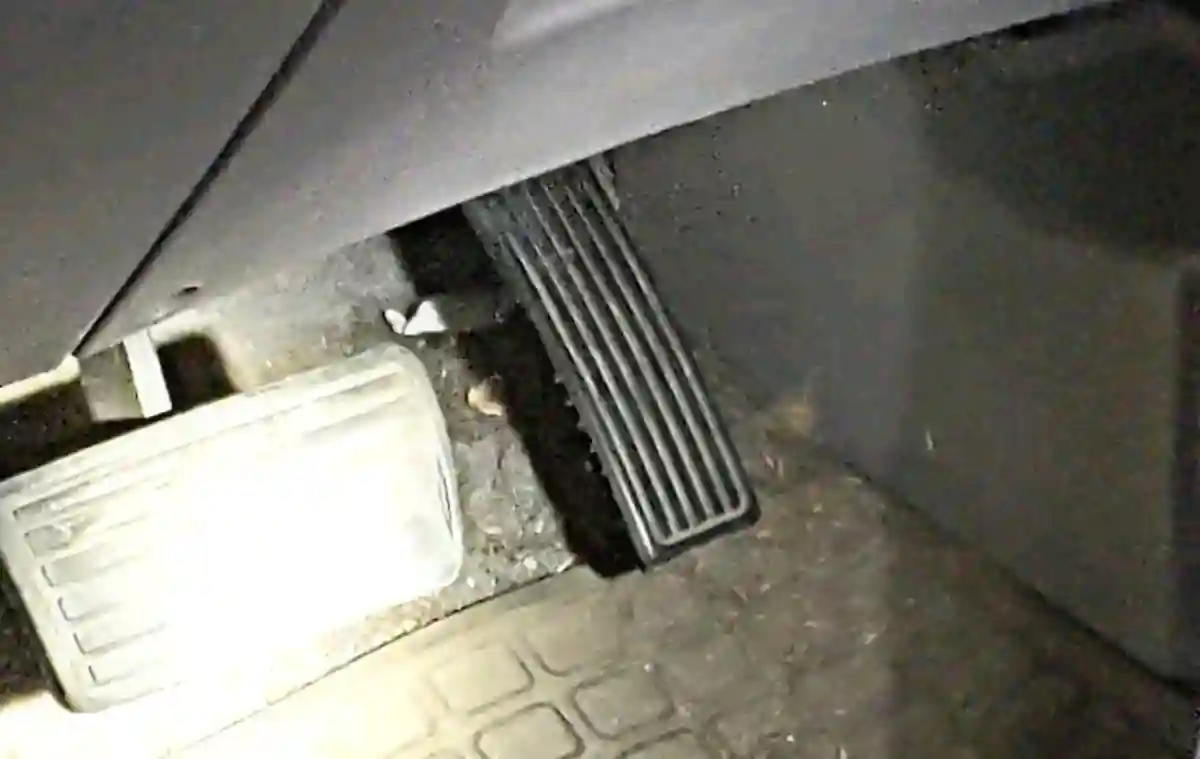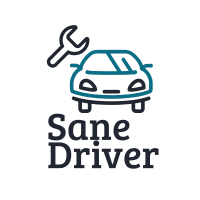8 Reasons Car Accelerates When Brakes Applied
In recent years, a disconcerting trend has surfaced within the automotive sector, where a car accelerates when brakes applied. This unusual behavior has sparked considerable anxiety about car safety, leading to in-depth research to identify the underlying cause.
In this article, we will probe the intricate relationship between mechanical, electrical, and software components in modern cars, scrutinizing how these elements can occasionally interact in unanticipated manners. In other words, our objective is to provide insights on the causes of car accelerating when brakes are applied and how you can fix it.
Car accelerates when brakes applied and how to fix

Knowing the causes of brake override can help drivers identify and resolve the issue before it becomes a bigger problem. Thus, below are possible reasons car accelerates when brakes applied:
Bad brake system
A frequently observed cause of brake override is a bad brake system. This can happen due to worn brake pads, the air in the brake lines, or a failure in the hydraulic system.
A bad brake system can cause a loss of braking power, making it challenging to control the speed of the car or bring it to a halt.
How to fix:
Fixing a bad brake system starts with identifying the issue, which can range from worn brake pads to a leak in the brake fluid system or a malfunctioning caliper.
Once the problem is diagnosed, replace or repair any defective components, flush the brake system of any air by bleeding it, and test the brakes thoroughly to guarantee correct operation.
To achieve optimal results, it is recommended to seek the assistance of a professional mechanic for a comprehensive brake system check and repair.
Engine management system problems
Another reason why a car accelerates when brakes applied or brake override is a problem with the engine management system. This system is responsible for controlling the speed and acceleration of the car, and if it is not functioning properly, it can result in the car accelerating when the brakes are applied.
Some of the possible issues relating to the engine management system include a faulty throttle position sensor, a clogged air intake, or a malfunctioning fuel injector.
How to fix this:
The process of fixing Engine Management System (EMS) issues begins with a proper diagnosis using tools such as an OBD-II scanner.
After identifying the problem, it can be resolved by repairing or replacing the faulty part. Sensors like the MAF or O2 sensors may fail, a damaged wiring harness can cause issues, and a control module malfunction is also a common problem with EMS.
In some situations, updating the software may be necessary to resolve the issue. To ensure the proper and safe operation of the car, it is recommended to have a professional mechanic diagnose and repair any EMS problems.
Shifter linkage issues
In some automatic cars, shifting from Park (P) to Drive (D) can be smooth and effortless. However, older car models with worn shifter linkages may encounter some difficulties when changing gears. Issues with the shifter linkage can result in the car accelerating when the brakes are applied.
How to fix:
To fix this problem, many modern car models come equipped with a brake-ignition-shift lock, which prevents the car from starting unless the lever is in Park (P) or Neutral (N).
Malfunctioning electronic throttle control
Modern cars are equipped with electronic throttle control (Counterman confirms), which determines the throttle position based on an electronic signal from the engine management system, rather than the physical position of the accelerator pedal.
Let us assume the electronic throttle control system is not working correctly, it can cause the car to accelerate when brakes are applied.
How to fix:
The process of fixing a malfunctioning Electronic Throttle Control (ETC) starts with a proper diagnosis using diagnostic tools like an OBD-II scanner.
Some of the common problems associated with ETC include a failing throttle position sensor, a damaged wiring harness, or a control module malfunction. Once the issue has been identified, it can be resolved by repairing or replacing the faulty part. In certain situations, a software update may also be necessary.
Engine vacuum leaks
Brake override can also be caused by engine vacuum leaks. These leaks happen when air enters the engine, disrupting the balance of air and fuel. This can result in the engine running too rich and causing the car to accelerate when the brakes are applied.
How to fix:
To fix an engine vacuum leak which is why car accelerates when brakes applied, the first step is to identify the source of the leak. This may involve examining hoses and connections for signs of cracking or looseness, inspecting the intake manifold gasket for any leaks, and testing vacuum actuators and the brake booster for proper functioning.
In situations where a component is damaged, such as a vacuum hose or vacuum pump, replacement may be necessary.
Poor or neglected brake maintenance
Proper brake maintenance is crucial for ensuring the safety and reliability of your car. Neglecting brake maintenance can result in worn brake pads, contaminated brake fluid, or other problems that can lead to brake override.
So, have in mind that regular brake inspections and maintenance are crucial to keeping your brakes in good working condition.
How to fix:
Neglecting brake maintenance can result in decreased braking efficiency and increased hazards while driving. To rectify this problem, have a skilled mechanic inspect your brakes and change any worn or damaged parts such as brake pads or rotors.
Moreover, it’s advisable to periodically have your brakes inspected and the brake fluid changed every two years to maintain optimum braking performance.
Electrical and wiring issues
Wiring and electrical issues can also be the reason why car accelerates when brakes applied. For instance, a frayed or damaged electrical wire in the brake system can result in a loss of power to the brakes.
Additionally, a malfunctioning brake light switch can also cause the car to accelerate when the brakes are applied.
How to fix:
Electrical and wiring problems can annoy and pose a threat, but they can frequently be resolved with some knowledge and the appropriate tools. The initial step is to locate the source of the problem by using a multimeter to check circuits and connections.
After the problem has been located, it could be a straightforward repair, such as tightening a loose connection or changing a damaged wire.
In complicated situations, it may be necessary to consult a wiring diagram and have a competent mechanic repair it. Regardless of the circumstances, it’s essential to be cautious when dealing with electrical systems and to seek expert assistance if you are uncertain of how to proceed.
Driver mistakes
In some cases, brake override can be caused by driver mistakes or errors. For example, if the driver accidentally presses the accelerator pedal instead of the brake pedal, the car will accelerate. Additionally, supposing the driver does not apply enough force to the brake pedal, the brakes may not fully engage, causing the car to accelerate.
How to fix:
If you make the mistake of pressing the accelerator instead of the brakes, take a moment to evaluate the situation and firmly apply the brakes to come to a stop. By maintaining concentration and being mindful, you can prevent this error from happening again and guarantee a secure and seamless driving experience.
Unintended sudden acceleration: a possibility at all times
Unintended sudden acceleration where car accelerates when brakes applied can occur unexpectedly, regardless of the car’s age or condition. With the changes in the design of modern car electronics, this type of acceleration is more likely to occur while the car is in motion.
Everyday driving activities such as shifting gears, disabling cruise control, and pressing the brakes can alter the car’s electrical current, causing malfunctions and potentially leading to sudden acceleration among other issues.
What to do during unintended Acceleration
Remaining composed and knowledgeable is crucial when dealing with unintended acceleration in a car. To avoid potential accidents, take the following steps.
1. Apply the brakes firmly
In the event of an uncontrolled acceleration, press down on the brakes with as much force as possible. Keep a firm and steady pressure on the brake pedal instead of pumping it.
You may need to apply more pressure than normal on the brake pedals. Although the car may not come to an immediate halt, the brakes will eventually slow down and stop the car.
2. Neutral shift
This is the most important action to take during an emergency. Switching to neutral gear may help slow down the car.
3. Turn off the engine
Once you have successfully shifted the car into neutral gear and feel that you have regained control of the car, turn off the engine. If your car is equipped with a push-button starter, press and hold it for a few seconds to turn off the engine.
Stay calm and steer the car as it slows down. Move the car to the side of the road before it comes to a complete stop, then seek assistance.
Frequently Asked Questions
Is sudden acceleration dangerous?
A car that experiences sudden and unintended acceleration can cause the driver to lose control, which can lead to serious car accidents.
How do you check if your brakes are bad on your car?
If you hear squeaking, squealing, or grinding noises coming from your brakes when you press the pedal, it is possible that your car needs new brake pads or rotors.
Final thoughts
It is worrying if a car accelerates when brakes are applied, indicating a potential malfunction in the car’s electronic system. This poses a considerable threat to the driver and surrounding people while on the road.
To ensure the safety of the car, it is imperative to promptly seek professional help in diagnosing and fixing the issue. Consistent maintenance checks and inspections can also aid in preventing such incidents.
- 10 Common Mistakes When Bleeding Brakes - September 12, 2023
- Dash Cam That Records When Car is Off [5 Best] - September 11, 2023
- How to Know if Dash Cam is Recording [10 Methods] - September 8, 2023




